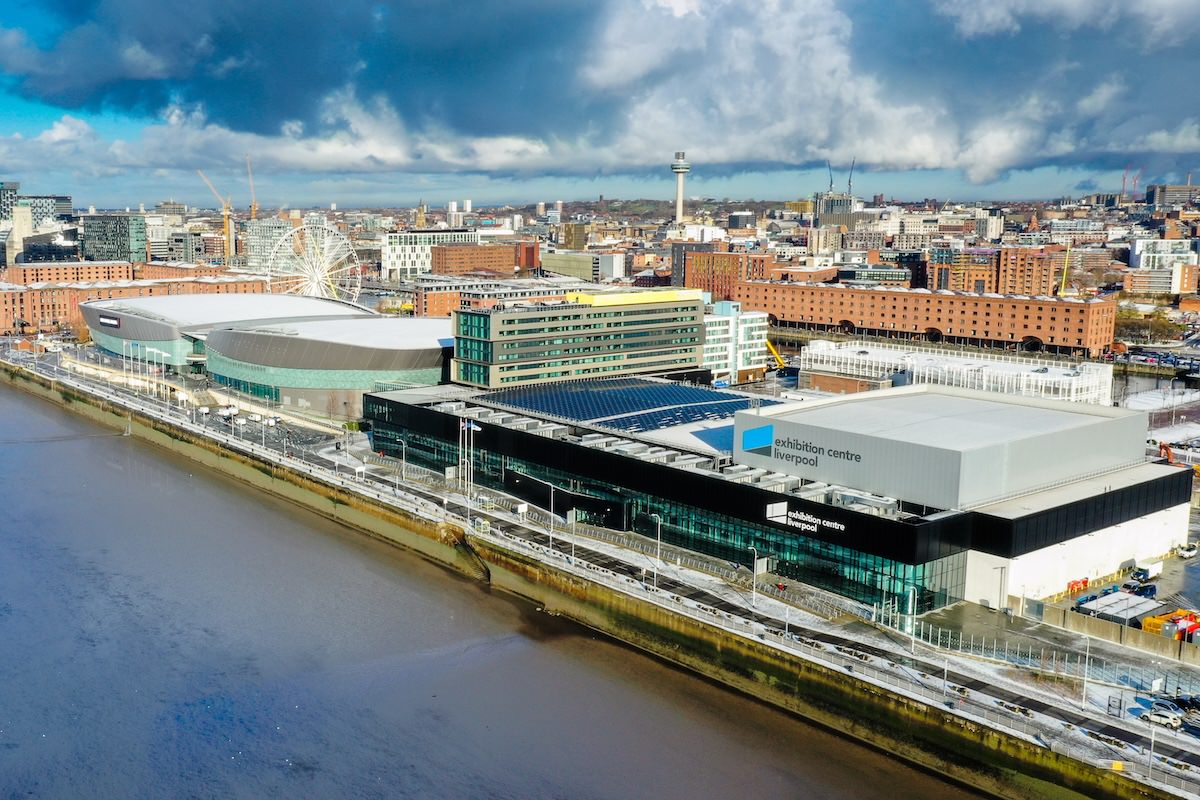As the M&S Bank Arena and Exhibition Centre Liverpool’s Hard FM Partner, we’re working with the team at ACC Liverpool to support their Sustainability Strategy which sets out how they will reduce their reliance on fossil fuels, whilst finding new ways to reduce waste, reuse materials and increase bio-diversity across the campus.
One recent project we completed with the ACC Arena was the refurbishment of the public toilets, staff changing and shower rooms. The Kimpton Turnkey Department, working closely with ACC Liverpool’s estates team, ensured the project was delivered on budget and on time whilst deploying a range of sustainability initiatives to reduce waste and improve energy efficiency.
- Sensor taps replaced the non concussive taps when the bathrooms were refurbished. These will reduce water wastage by up to 90% across the site.
- The hand driers were specifically chosen for high efficiency, low running costs and their unique design that ensures very few drips will be sprayed onto the wall, floor and skirtings around the driers. This will lessen the need for ongoing cleaning and maintenance.
- We also designed the bathroom layout to reuse all of the existing drainage locations. This meant much lower labour, power and concrete usage during the removal of the old bathroom and installation of the new. This sounds like a simple idea on its own, but the cost savings it delivered were great enough to allow a higher spec, longer life finish for the new installation.
- Timber studwork removed from one area was broken down and re-used. Off-cuts of the IPS panels were re-purposed for use on other projects.
- A number of heavy-duty doors were repurposed for use in a different part of the site. It’s far easier (and, as in the case of many waste-reduction efforts, cheaper!) to adjust the door jamb on a different location than waste a good door and the heavy additional cost of replacement with new doors.
- Ceiling tiles removed that were not reused on site were returned to the manufacturer as part of their take-back scheme. Many manufacturers now operate take-back schemes whereby they will remove old equipment for recycling when they supply new replacements.
- Materials used on site were all sourced locally supporting local businesses and local jobs. Obviously, they may not have been made locally, but they all came from local merchants and suppliers.
- Kimpton and ACC Liverpool both focus on using local labour where possible as part of our Sustainability Strategy. Using local labour reduces carbon and helps the local community grow which creates a thriving local economy. With 95% of our team living within the Liverpool City Region we were able to deliver maximum economic benefit to the community and support the circular economy.
- Much of the lighting across the whole ACC site has been replaced with LED lighting, with many even reusing the existing housings. This has the potential to save over 75% of ongoing running costs for lighting.
- PIR’s were also specified in low traffic areas too. When combined with the LED upgrades, this is a double win, as lights are both cheaper to run and only come on when they are required.
- Any lamps that weren’t reused or repurposed were also returned to the manufacturer using their take-back scheme. A take-back scheme is when a manufacturer collects products at the end of their old products for recycling or re-purposing.
- Timber that we were unable to re-use was offered and delivered to a number of community schemes that could make use of them. Timber was re-used for a range of projects including by a Men’s Mental Health Group who used it to make bird boxes and planters for a community food-growing scheme.
- Other waste was sent to Incredible Edibles, Knowsley who make use of all kinds of left-over building materials such as using old drainage pipes to grow strawberries! In addition to the work they do to promote healthy eating the fresh food they grow is sent to their food club, with any excess going to the local food bank.
Working with a customer like ACC Liverpool who are committed to working more sustainably has helped us focus on where we can improve and make positive strides towards a sustainable future.
Most of these are simple efforts that, as well as reducing waste and carbon, also save money whilst delivering social value to the community schemes that make use of the waste.
It really is a win, win, win!
